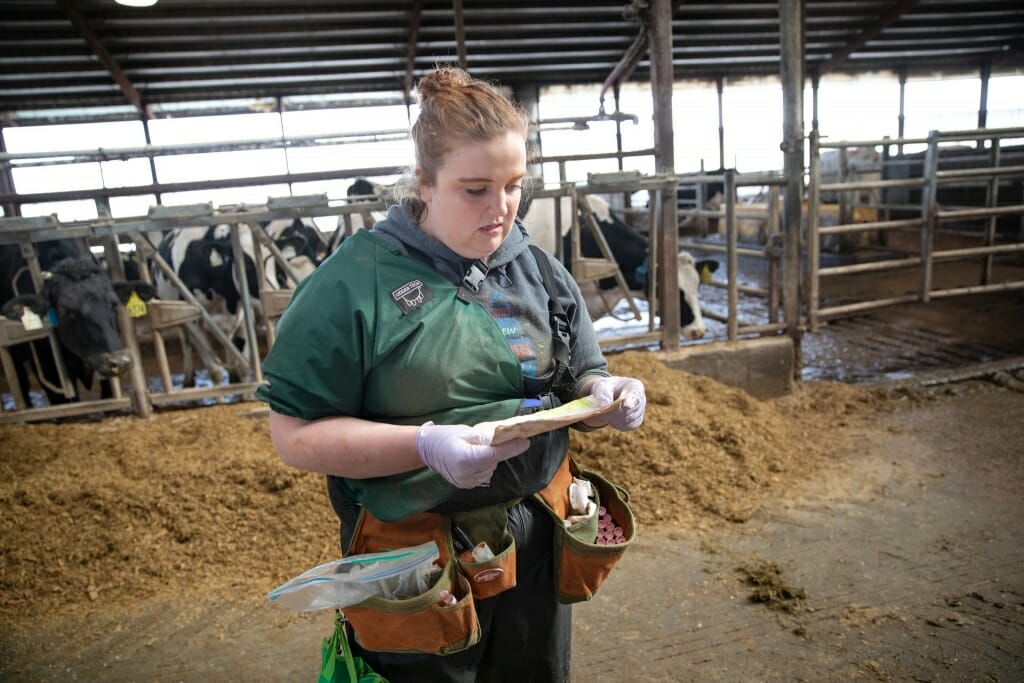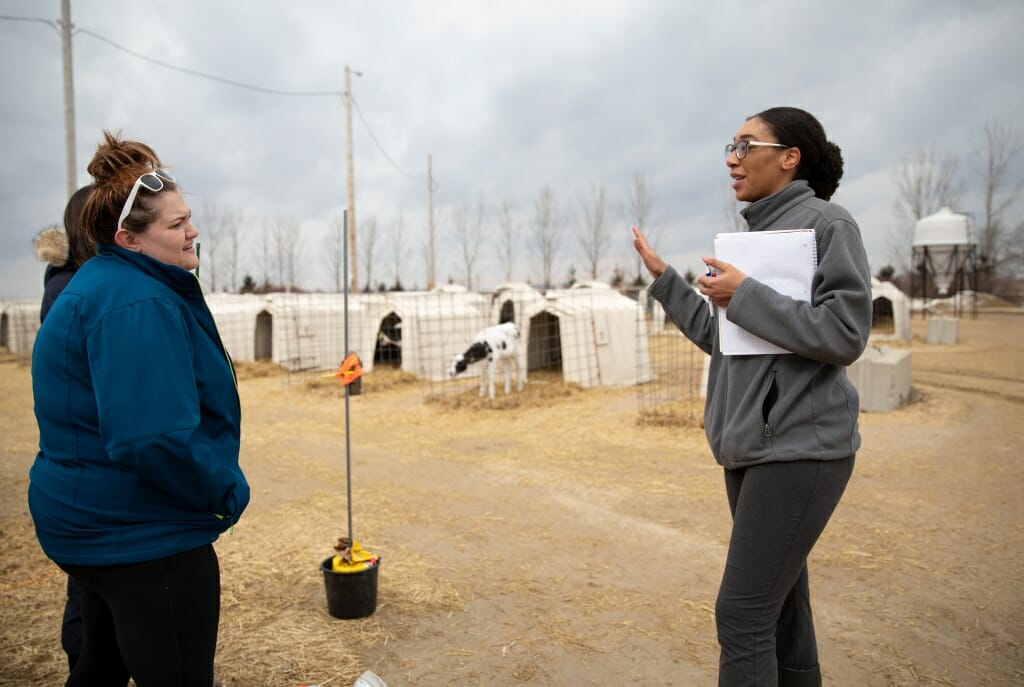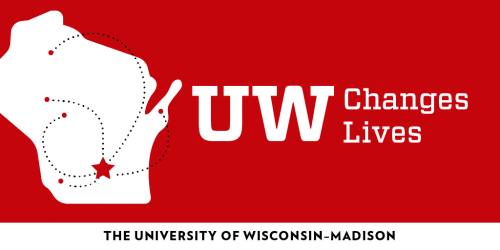UW Changes Lives: Dairy industry support for grad students pays off
From February through June, we will be highlighting the ways that UW–Madison changes lives for the better throughout the state of Wisconsin. March’s theme is Affordability and Excellence. Watch for more at #UWChangesLives on social media. And here’s how you can help.
When it comes to generating useful ideas and solutions for the dairy industry, graduate student researchers are the unsung heroes.
“Most of the research that gets done on campus is carried out by grad students. They’re the boots on the ground,” says Kent Weigel, who chairs the University of Wisconsin–Madison Department of Dairy Science.
While faculty researchers provide guidance and advice, it’s the students who comb through literature, work out the experimental design, and collect and analyze the data, notes Weigel, a professor and extension specialist in the department.
“This benefits the industry in two ways,” he says. “Students conduct research that leads to new products and protocols and technologies. And they graduate as highly trained potential employees.”
UW–Madison dairy scientists would like to bring in more grad students to conduct industry-related research, so last year they introduced a new initiative, the Dairy Research Partnership, to encourage dairy-related businesses to fund the roughly $50,000-per-year cost of educating a grad student.
This year the initiative is supporting four students who are conducting research related to nutrition, animal behavior and reproduction. Individual firms are funding two of them, while the other two are being supported from a pool of contributions from several companies, organizations and individuals.

Part of Megan Lauber’s work involves collecting and analyzing data on pregnancy from dairy farms across the country. Photo: Michael P. King
One of those students is Megan Lauber, who is working in the lab of reproductive physiologist Paul Fricke, a professor and extension specialist. Lauber is looking at strategies to improve fertility when using sexed semen to impregnate cows and heifers.
“Current reproductive fertility programs are optimized for the use of conventional semen,” she says. “But more farmers are using sexed semen inseminations, while fewer are using conventional semen. My project aims to adapt protocols to improve fertility when using sexed semen.”
Part of Lauber’s work involves collecting and analyzing data on pregnancy from dairy farms across the country. She will also be doing in vitro work to assess and better characterize bull fertility between conventional and sexed semen.

Rekia Salter says her research is teaching her technical skills that will be invaluable when she goes to work as a consultant in the industry. Photo: Michael P. King
Rekia Salter, another of the industry-funded students, is researching housing calves in pairs rather than individually. Paired housing has been shown to improve the calves’ cognitive skills and social development, as well as their solid feed intake and growth.
“Hutches are the most prevalent calf management system. My goal is to create a successful way to use pair housing in a hutch system,” says Salter, who is working with assistant professor and extension specialist Jennifer Van Os. “This would improve calf welfare while allowing producers to gain the benefits of social housing without having to change their management system.”
Salter says her research is teaching her technical skills that will be invaluable when she goes to work as a consultant in the industry.
“I am learning skills that I will be able to apply to many different jobs, such as animal handling, farm management, working with large data sets and statistical analysis,” she says.
“This benefits the industry in two ways. Students conduct research that leads to new products and protocols and technologies. And they graduate as highly trained potential employees.”
Kent Weigel
Lauber says her research is not only building her technical expertise, but also sharpening her analytical skills.
“My research is teaching me how to think in a completely different way,” says Lauber, who wants to work as a reproductive specialist. “I have to go out and find the knowledge I need by searching through literature and other sources, and then think about how I’m going to apply what I’ve learned. I believe this will allow me to analyze data and farm management more effectively as a consultant.”
Fricke seconds that notion.
“Farmers are confronted with all sorts of ideas and products that are said to do certain types of things,” he says. “I tell my students they have to look at the data to see whether it supports those claims. It’s a critical skill that comes out of master’s-level programs.”
Fricke says the industry funding is essential for this “translational” research — work that distills scientific knowledge to develop solutions that can be used directly by farmers and veterinarians.
“The type of project Megan is doing wouldn’t be funded by a granting agency geared towards basic science,” he says. “She’s looking at a way to better use an existing technology. The better we can get that technology to perform in the field for dairy farmers, the more likely they are to use it.”

